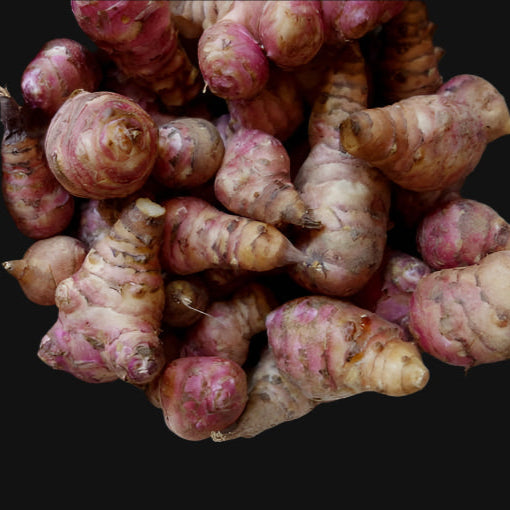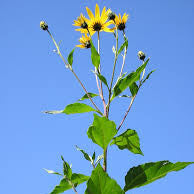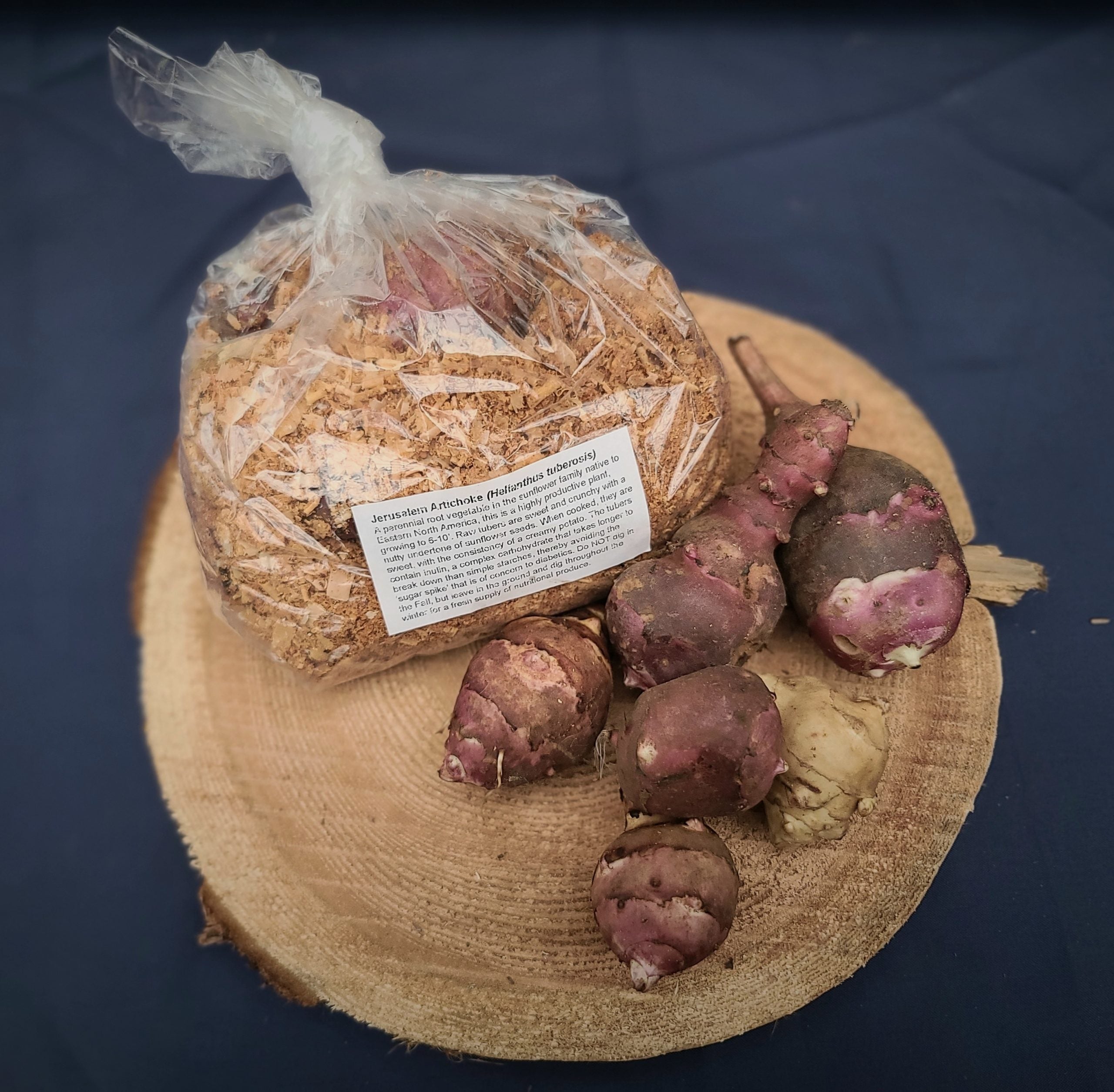
Jerusalem Artichoke
Jerusalem artichoke is a perennial root vegetable native to Eastern North America. Domesticated by First Nations in Eastern Canada, this highly nutritious and productive plant is a truly Canadian food.
Produces sweet, crunchy tubers with a nutty flavour reminiscent of sunflower seeds when eaten raw. Cooked tubers become even sweeter with a creamy consistency similar to potatoes, making them versatile for boiling, baking, frying, pickling, or eating raw. Their high inulin content makes them an excellent prebiotic, supporting gut health and balancing blood sugar levels.
Companion plants like corn, beans, and squash complement Jerusalem artichokes by creating a supportive garden ecosystem.
Where Can You Grow Jerusalem Artichoke
This hardy perennial thrives in Zones 3-9 and prefers well-drained soil in full sun. Jerusalem artichokes are easy to grow in garden beds or naturalised areas. They are drought-tolerant once established and require little maintenance.
History and Historical Uses
Jerusalem artichoke has been a staple food for centuries, originally domesticated by First Nations in Eastern Canada. Its resilience and nutritional value made it an essential part of traditional diets. Today, it is celebrated for its role in sustainable agriculture and its unique contribution to North American food heritage.
Canadian Zone Information
- Zones 8-9: Plant tubers in early spring or late winter for strong growth.
- Zones 5-7: Plant in spring after the ground has thawed and harvest through winter.
- Zones 3-4: Mulch heavily to protect tubers during winter and plant in spring.

How to Grow and Harvest Jerusalem Artichoke
- Planting: Plant tubers in thawed soil as soon as you receive them, 10-15cm (4-6in) deep and 45-60cm (18-24in) apart.
- Watering: Water well during establishment; once mature, the plant is drought-tolerant.
- Harvesting: Do not dig in the fall. Wait until stems have died back and harvest throughout winter for fresh produce.
- Replanting: Save your largest tubers and replant directly into new beds as you harvest to encourage larger tuber growth and prevent the plant from taking over your garden.
Seed Saving Tips for Future Supply
Jerusalem artichoke is propagated through its tubers rather than seeds. Follow these steps for replanting:
- Choose the Best Tubers: Select the largest and healthiest tubers during your winter harvest.
- Replant Immediately: Move tubers directly to a new garden bed as you dig, planting 10-15cm (4-6in) deep.
- Avoid Overgrowth: Rotate planting locations yearly to encourage larger tubers and prevent the plant from spreading uncontrollably.
Certified Organic By
Islands Organics Producers Association (Cert#1962)

